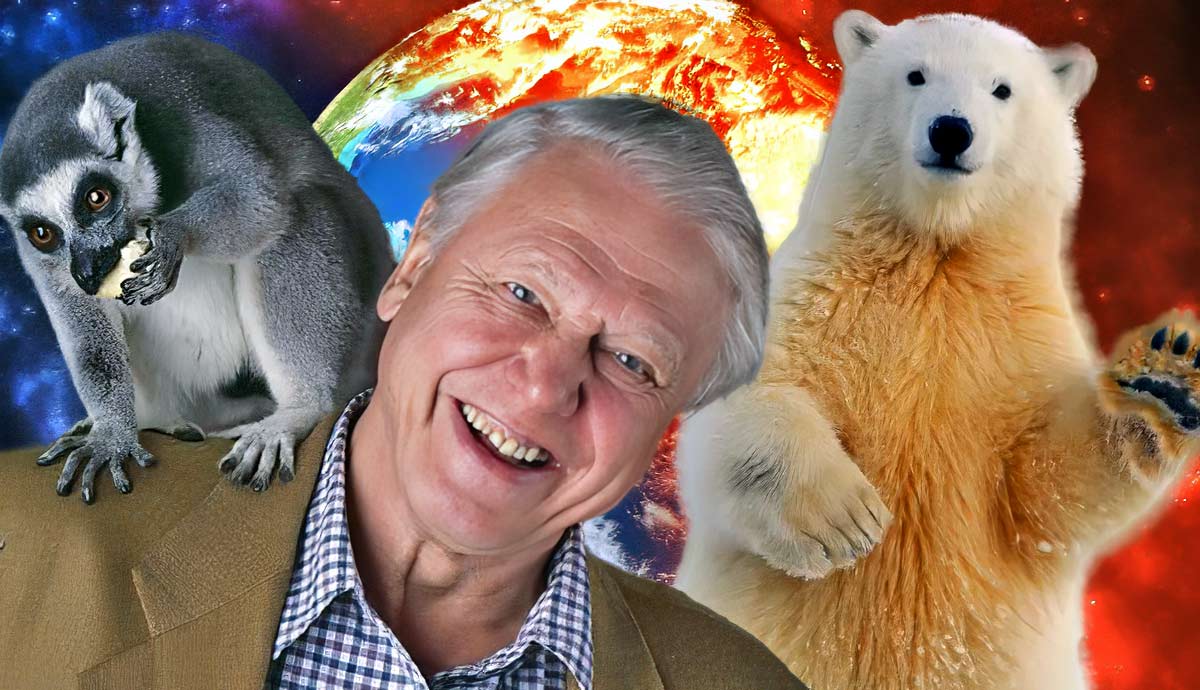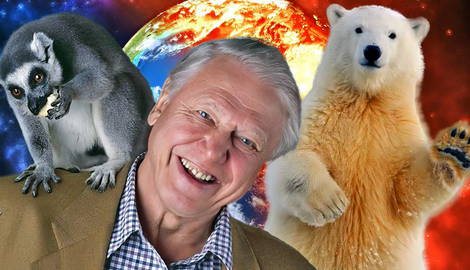
Sir David Attenborough, the world’s most famous naturalist, is the instantly recognizable voice of award-winning natural history programs for the past 70 years. He has inspired millions to fall in love with the wonders of the natural world. In his later years, Attenborough has become a prominent champion of conservation issues and environmentalist concerns. Yet he also has his critics. For some he was silent, for too long, on the destructive impact of people on the planet. Today, his warnings about the dangers of climate change are far more urgent.
The Early Years

David Attenborough’s early years were spent collecting fossils and animal specimens, paving the way for a scholarship to study Natural Sciences at the University of Cambridge. He briefly worked as an editor for an educational publisher. However, Attenborough’s true calling beckoned when he joined the British Broadcasting Corporation (BBC). In 1952 he joined the Talks Department (non-fiction broadcasting) as a producer. His association with natural history began almost immediately.
Attenborough’s first major natural history documentary series was Zoo Quest (1954-1963). The concept was simple: in each instalment he travelled to a different part of the world to snatch an animal to take back to London Zoo.
Today Zoo Quest looks like a criminal enterprise. Nonetheless, the series was the most popular wildlife program of its time, and established David Attenborough as the most recognizable nature documentary presenter in Britain.
A Broadcaster at BBC Television Centre

Following the success of Zoo Quest, David Attenborough assumed the role of Controller for BBC Two. In 1965, he accomplished one of the greatest feats in television, the first ever color-television broadcast in Europe. He outpaced his nearest rival – German television – by three weeks. Soon after, Attenborough commissioned two landmark documentary series’: Civilization written and presented by art historian Kenneth Clarke and The Ascent of Man, presented by the scientist Jacob Bronowski. These programs set a new standard for television documentaries, putting history, culture and science on the screen in ways never seen before.
As Director of Programs at the BBC, Attenborough made yet another bold decision that changed comedy forever. In 1969, he commissioned the iconic sketch show Monty Python’s Flying Circus. The show inspired generations of comedians to come and became an instant part of Britain’s cultural DNA.
The Inventor of Natural History Blockbusters

Attenborough is best known of course for his awe-inspiring natural history documentaries. After three years of production in 1979 his first documentary epic, Life on Earth, was broadcast in thirteen, 55-minute-long episodes. The series was a game changer. In the years to come Attenborough continued to reinvent the ‘natural history blockbuster’ as he went along. The Private Life of Plants (1995) created a new sub-genre, while The Blue Planet (2001) was the first-ever comprehensive natural history account of the earth’s oceans.
For Attenborough’s Life in Color (2021) his team designed new cameras that afforded viewers a perspective akin to the animals on the screen. His multi-award winning, visual spectacular, Planet Earth II (2016), is universally regarded as a pinnacle of modern nature photography. David Attenborough practically invented the natural history documentary as we know it today.
Conservation Work and Climate Change Awareness

While his early work focused mainly on the marvels of the natural world, David Attenborough’s later career has seen him emerge as a prominent advocate for environmental causes. Accordingly, his programs have also progressively shifted focus towards accounts of the profound impact of human society on our planet. He has also gone out of his way to make specials on urgent environmentalist themes such as Extinction: The Facts (2020) and A Life on our Planet (2020).
In addition to his documentary work, Attenborough is a champion for various conservation initiatives affiliated with a wide range of organizations, from the World Wildlife Fund (WWF) to the Zoological Society of London (ZSL). David Attenborough regularly delivers addresses at prestigious summits such as the World Economic Forum and United Nations Climate Change Conferences. His unwavering commitment to the natural world has placed him as a leading figure in the global conservation movement.
Attenborough and His Critics

Despite David Attenborough’s numerous accomplishments, he has not been without criticism. The colonial-era animal snatching antics of Zoo Quest aside, Attenborough was sceptical about man-made climate change for a long time. He was silent on the issue until 2006. For a naturalist of such global stature it has been claimed by some that his “long silence on extinction and global warming in his television work has contributed towards a popular knowledge deficit.”
He has been criticized specifically for his views on population control and his calls for more debate on the environmental challenges of overpopulation. Most controversially, he once linked famine to overpopulation and claimed that sending food aid to famine hit areas was “barmy”. Nonetheless, Attenborough is not a politician, but by his own admission, a man who enjoys “looking at animals and seeing what they do.” In that endeavor, Sir David Attenborough is second to none.










